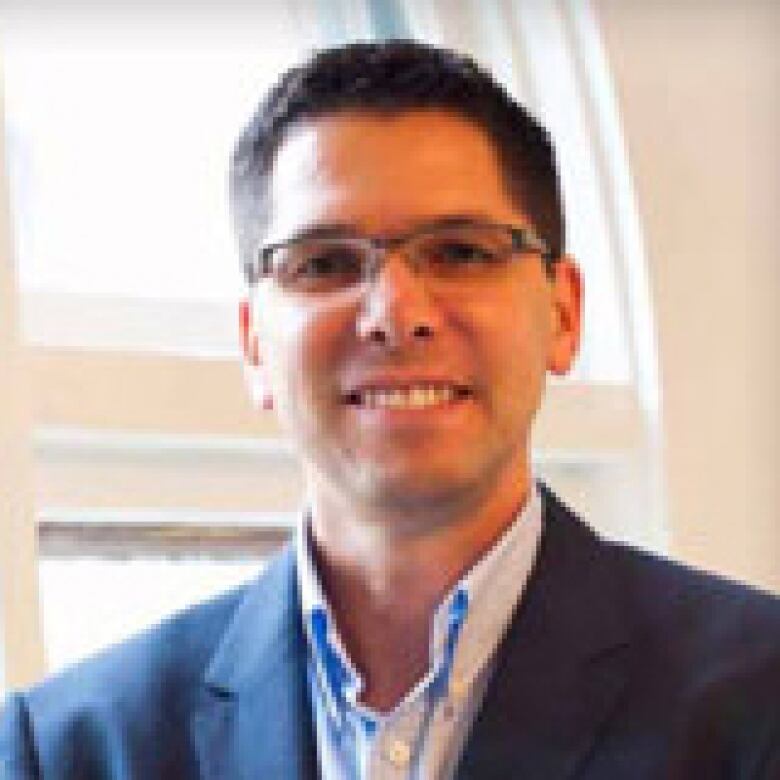Jamie Wilson, Manitoba treaty relations commissioner, retires
Wilson leaves office after 6 years working to improve First Nations education in Manitoba
Manitoba's treaty commissioner says he's proud of the work he's accomplished over the past six years advocating for First Nations rights, but Manitobans still "have work to do."
Jamie Wilson'slast day in office is March 31. He was appointed thecommissioner for the Treaty Relations Commission ofManitobain 2010 and served two terms in the position.
Wilson said despite stepping away from the office, he's committed to moving the conversation forward on the education, economic and societal inequities faced by Canada's indigenous peoples.
"I'm excited and a bit scared at the same time,"Wilson said, adding he's moving into the consulting world.
Wilson is originally fromOpaskwayak Cree Nation.During his time in office, more than 2,000 teachers across several school divisions in Manitoba have learned about First Nations treaty rights through the Treaty Education Initiative.
"It's really created a groundswell of support from teachers," he said. "Once they go through training, where they hear from elders, historians, legal experts, and they realize what they've missed, there's kind of a sense they feel ripped off."
Wilson has focused on understanding and addressing problems in the education system that disproportionately affect indigenous youth. Over the past few years, he said, he's realized that fixing those issues alone isn't enough to improve the plight of First Nations.
- First Nations schools vulnerable to teacher impersonators, educator says
- Oral history book ensures aboriginal elders' stories live on

While Wilson remains committed to improving the quality of education accessible to indigenous people, he said he also plans to focus on forging partnerships between First Nations and businesses to ensure lasting change.
First Nations represent one of the fastest growing populations in Manitoba. Wilson said that fact isn't lost on him and it shouldn't be lost on the private sector either.
- 1 in 5 Manitobans will be aboriginal by 2036: StatsCan
- A snapshot of Canada's booming aboriginal population
We have to ask ourselves some really, really tough questions both across communities and within communities.- Jamie Wilson
"If you're a business in Canada and you're not engaging the indigenous community, or you don't have a plan to engage you will quickly become irrelevant to the fastest-growing segment of the population,"he said.
"It's also imperative for First Nations to adapt to some of the business culture, the boardroom culture, and access some of the networks they historically haven't been a part of."
Wilson said he doesn't know who will be tapped on the shoulder to fill his shoes, adding the Trudeau government plans to conduct an openvetting process based on the merit and experience of candidates.
Wilsons said he is grateful for his placement and the colleagues he was surrounded by since his appointment six years ago.
"I have to say that the staff in our office at the Treaty Relations Commission of Manitoba, we have the best staff of anyone [anywhere],"he said.
In the end, Wilson said one of the things he's most proud of is the impact the treaty commission has had on raising awareness and working to dismantle racism toward indigenous people.
"One of the things we've been most successful at is not preaching to the choir," he said. "It's easy to go and talk to an audience who agrees [with] everything you're having to say. But if you go and talk to a community that might have pretty strong stereotypes or prejudice or misconceptions about what an urban reserve is, taxes that's where you've got to earn your pay.
"We have work to do and we have to ask ourselves some really, really tough questions both across communities and within communities."













_(720p).jpg)


 OFFICIAL HD MUSIC VIDEO.jpg)
.jpg)



























































































